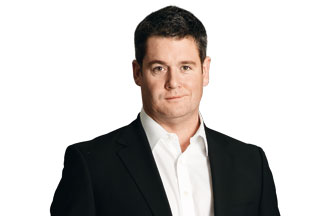The most recent case study came last Thursday, when it emerged that Google would launch a service in the UK next year allowing estate agents to list their properties for free. The news came as a shock to Rightmove, the leading online real-estate service in the UK. Yet, as usual, the executives in charge were openly dismissive of the threat.
'Should Google announce anything, we are confident people will see value in our services,' Rightmove's commercial director, Miles Shipside, confidently retorted. Obviously the markets weren't as sure as Miles. On Thursday, Rightmove was the worst-performing stock on the FTSE 100, with 10% wiped off its share price overnight.
In October, the same situation played out in the sat-nav sector. Google announced that its Android software would include a free application offering voice-based driving instructions that, many argue, are superior to anything offered by incumbent manufacturers such as Garmin and TomTom.
The established entities downplayed the threat. Ted Garter, a spokesman for Garmin, insisted: 'Standalone devices will still be an important way for consumers to get directions. We're not going anywhere.' Investors disagreed; stocks in both it and TomTom have plunged dramatically since Google's entry into their market.
Ask senior executives about the potential of brand extensions, and most will happily discuss opportunities under consideration. However, ask them about the threat of competitors from other categories invading their market, and the idea is usually met with gruff dismissal. Their businesses depend upon 'expertise', 'established reputations' and 'years of experience', and category entrants are doomed to fail.
Of course, none of this generally holds up to the reality of the market.
If a brand can enter a category with a superior or game-changing alternative, consumers will often switch.
In the traditional business models of the 20th century, these moves were as rare as they were gradual - but they did happen. Nokia owes its origins to pulp mills; it took more than a century to enter the telecommunications sector.
Today's strongest brands, such as Google and Apple, enjoy much lower category specificity. Consequently, they have a deep and positive reservoir of brand equity, but one that is eminently extendable into other categories. This, combined with the relatively low entry barriers to many of today's businesses, means that the frequency, speed and probability of success for an extension from these brands is greater than that of their historical equivalents.
Of course, the other advantage for the likes of Apple and Google is that, while their managers might be living in the 21st century, many of the executives in their targeted categories are still applying the old rules.
Perhaps the most hilarious example of this was Greg Winn, operations chief at Telstra, Australia's biggest mobile phone operator. In 2007, Winn was asked about the likelihood of Apple's iPhone threatening Telstra's established business. He responded, 'There's an old saying, "stick to your knitting", and Apple is not a mobile phone manufacturer. That's not their knitting...
I think people have overreacted to it - there is not a lot of tremendously new stuff if you think about it.'
Mark Ritson, PPA columnist of the year (business media), is an associate professor of marketing and consultant to some of the world's biggest brands
30 seconds on... Google's property-listing extension
- According to Edward Mead, an estate agent at Douglas & Gordon, Google's new offer is very attractive: 'This service, which is free, will appeal to estate agents' cost-cutting nature. Given that 60% of agents are one-off traders, this will have serious appeal.'
- Rightmove's commercial director, Miles Shipside, remains confident of his brand's invulnerability. 'It remains to be seen what actually happens. Google is a big name, but they don't always manage to follow through on a local level,' he says. 'Agents offer very good value, and charge very competitive rates, compared to the rest of the world.'
- Sarah Beeny of Channel 4's Property Ladder show, disagrees: 'If it does what Google says it will, it brings the buyer and seller closer together. That could mean removing blocks in the way, such as no longer having to pay extortionate fees to estate agents.'
- Andreas Pouros, chief operating officer at search marketing agency Greenlight, believes this could be the death knell for traditional estate agents. 'If it becomes popular - and there's every reason to believe it will - and as the average private seller becomes more technologically savvy, estate agents as we know them will cease to provide any real value to sellers. They will offer no value as part of the supply chain.'


